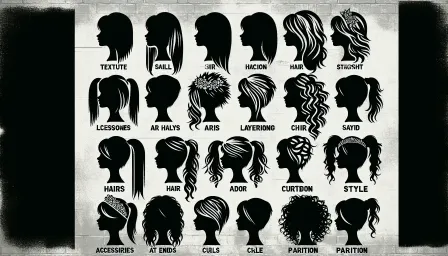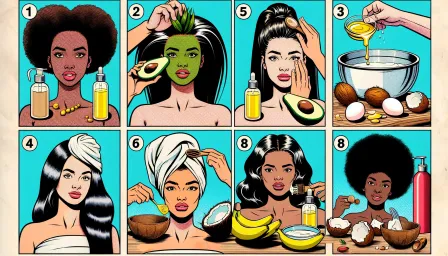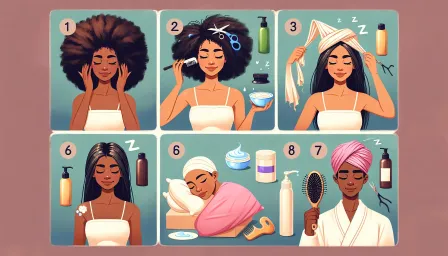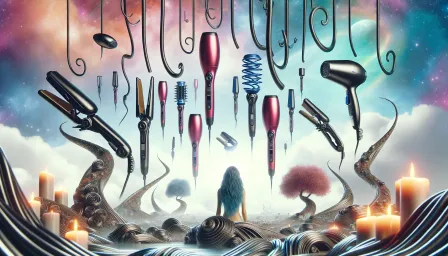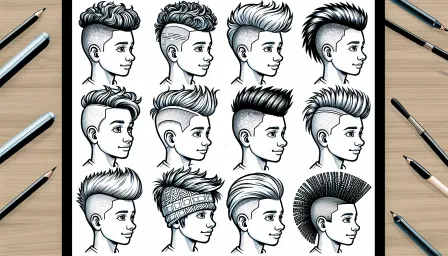Thinning Hair Myths Debunked: 5 Common Misconceptions Exposed
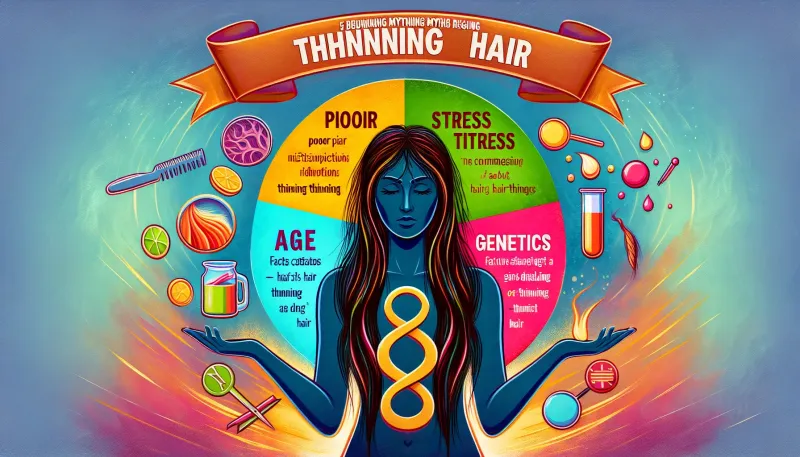
Discover the truth behind common thinning hair myths. This well-researched article debunks misconceptions and provides facts for healthier hair.
Many people experience thinning hair at some point in their lives. Unfortunately, there are numerous myths surrounding this condition that can lead to misconceptions and ineffective treatments. In this article, we’ll debunk five common thinning hair myths, providing you with accurate information and effective solutions for healthier hair. Read on to separate fact from fiction and learn how to manage thinning hair more effectively.
Myth 1: Wearing Hats Causes Hair Loss
This is one of the most pervasive myths about hair loss. While it’s understandable to worry that wearing hats might contribute to thinning hair, research shows otherwise. Hats do not cause hair loss unless they are extremely tight and worn for extended periods, which can lead to scalp issues. Normal hat-wearing, however, has no significant impact on hair health.
The Science Behind It
Hair loss, or alopecia, is usually the result of genetic factors, hormonal changes, or medical conditions—not hat-wearing. Hair follicles receive nutrients through the bloodstream, and wearing a hat does not hinder this process.
Practical Advice
If you love wearing hats, continue to do so without fear of losing your hair. Just ensure your hats are clean and fit well to avoid any undue pressure on your scalp.
Myth 2: Frequent Hair Washing Causes Thinning Hair
Regularly washing your hair is often blamed for causing hair to thin, but this myth fails to recognize the real culprits behind hair loss. Washing your hair helps maintain scalp cleanliness, which is vital for healthy hair growth.
The Truth About Hair Washing
Hair shedding during washing is a natural part of the hair growth cycle. We lose about 50-100 hairs daily, and washing helps to remove these naturally shedding hairs. It does not increase overall hair loss or contribute to thinning.
Effective Hair Care Tips
How often you should wash your hair depends on your hair type and lifestyle. Use gentle, sulfate-free shampoos and conditioners to nourish your scalp without stripping natural oils.
Myth 3: Only Men Experience Significant Hair Loss
The belief that significant hair loss is a predominantly male issue is incorrect. Women, too, are affected by thinning hair and hair loss, although the patterns and causes may differ.
Understanding Female Hair Loss
Women can experience hair thinning due to hormonal changes (such as during menopause or pregnancy), medical conditions, or stress. Female pattern hair loss (FPHL) affects millions of women and can be just as distressing as male pattern baldness (MPB).
Proactive Measures for Women
Women noticing hair thinning should consult a dermatologist or a trichologist to identify the cause and explore treatment options such as topical treatments, medication, or lifestyle changes aimed at improving hair health.
Myth 4: Hair Loss From Stress is Permanent
While it's true that stress can exacerbate hair loss, this effect is usually temporary. Whether it’s emotional stress or physical stress (like surgery or illness), once the stressor is managed, hair typically grows back.
Telogen Effluvium Explained
Telogen effluvium is a common type of hair loss that occurs after significant stress, causing more hairs than usual to enter the resting phase of the hair growth cycle. This results in increased shedding, but hair growth often resumes once the stress is under control.
Strategies for Stress-Induced Hair Loss
Practicing stress management techniques such as regular exercise, meditation, and adequate sleep can mitigate stress-related hair loss. Also, maintaining a balanced diet can support overall hair health during stressful periods.
Myth 5: Natural Oils and Home Remedies Can Cure Hair Thinning
Although natural oils and home remedies can enhance hair health, they are not magic cures for hair thinning. They should be viewed as complementary treatments rather than primary solutions.
The Role of Natural Oils
Oils like coconut oil, argan oil, and castor oil can improve scalp health, reduce inflammation, and add shine to your hair. However, they do not address the underlying causes of hair thinning, such as genetics or hormonal imbalances.
Comprehensive Hair Care Approach
While using natural oils can be beneficial, a more comprehensive approach involving medical treatments, lifestyle changes, and professional advice will be more effective in managing hair thinning.
Conclusion
Understanding the realities of hair thinning is crucial for effective management and treatment. By debunking these common myths, we hope to provide clarity and direction for those experiencing hair loss. Remember that many factors contribute to hair health, and tailored strategies are often required. Always consult with healthcare professionals to determine the best course of action for your specific situation.






